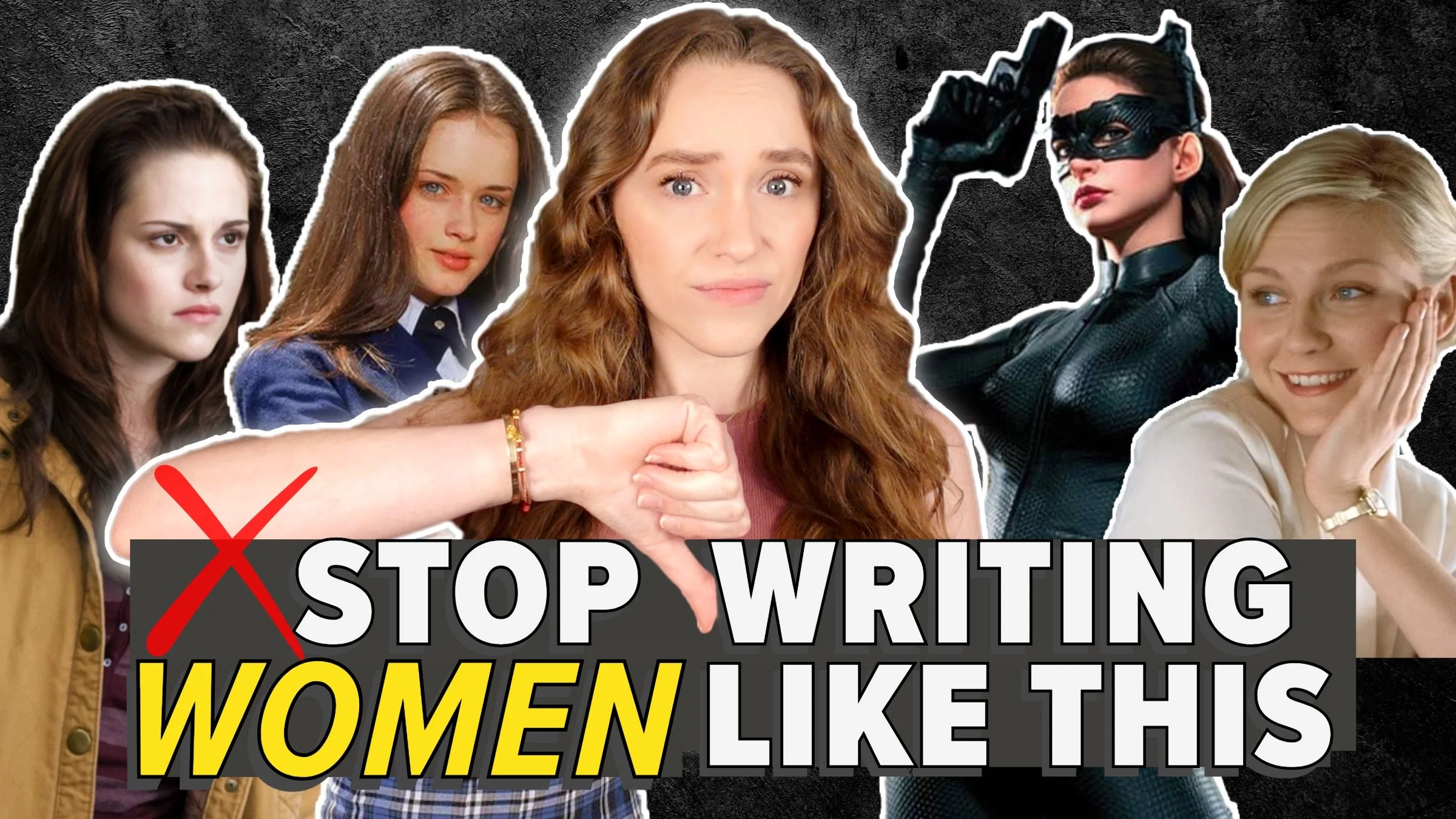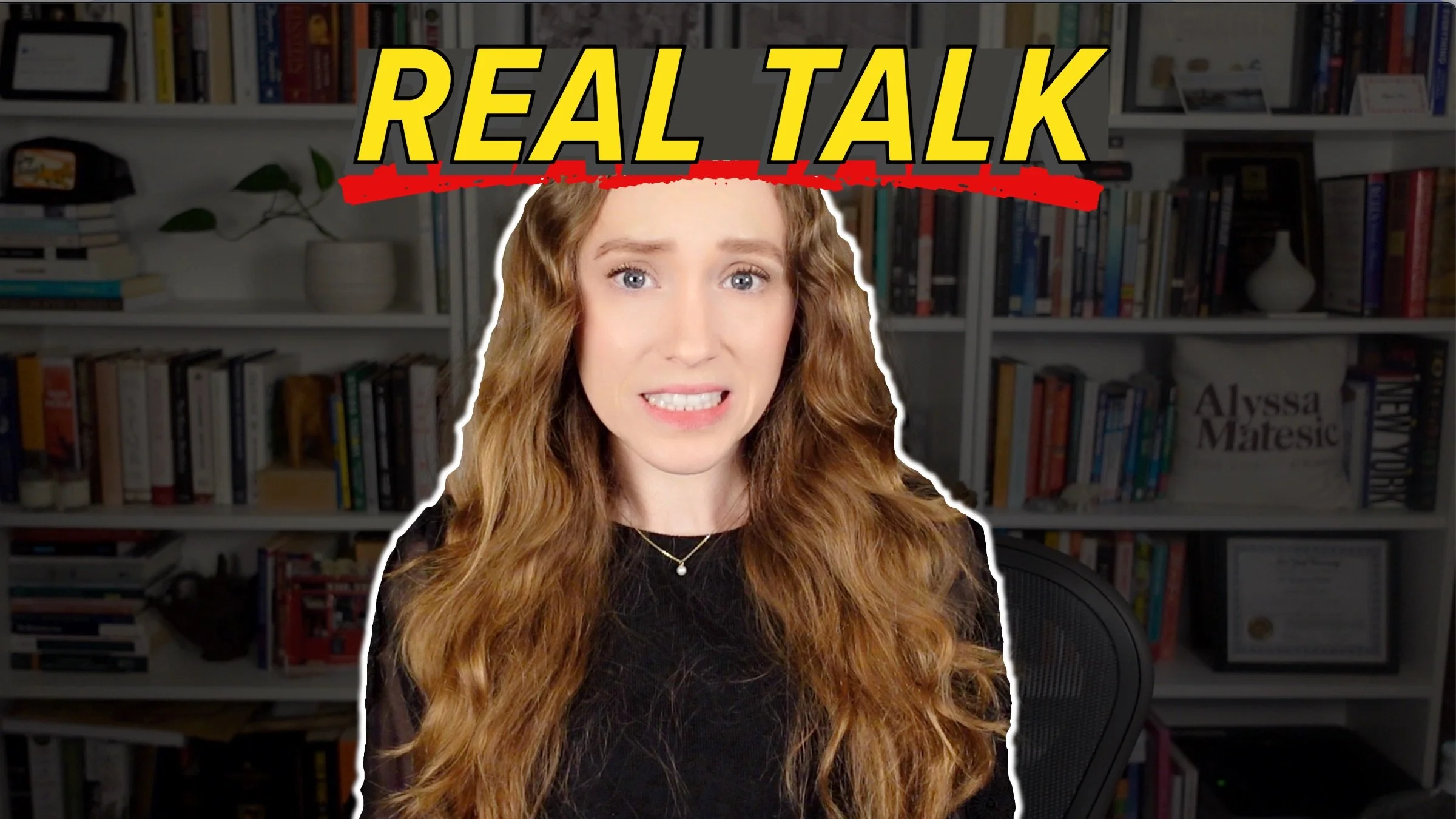What Happens After You Get a Literary Agent?
HIT PLAY OR READ THE POST BELOW:
I often talk about how the traditional publishing industry works, some common misconceptions about it, and how you can get your book published by a major publishing house. I have also talked about how to get a literary agent, what they're looking for, and how to search for a literary agent.
But what happens after you get a literary agent? It can feel like getting a literary agent is the golden ticket and everything is going to fall into place afterwards. While getting representation is definitely a huge accomplishment, the truth is that it is just the beginning of your publishing journey.
There are still many unknowns between getting representation and getting published. How does your publishing journey unfold at that point? How long does it take to get a book deal? Do you keep working with your agent after your book is published?
In this article, I'm going to talk through what happens after you get a literary agent so you have a greater understanding of how the rest of your publishing journey will play out. Here are the steps you’ll go through after signing an offer of representation.
Revise Your Manuscript
The first step that takes place after you sign with a literary agent is that you are going to revise and workshop your manuscript with your agent. Your literary agent often acts as an editor when you first begin the collaboration process with them. This is because they have a keen editorial eye and understand what editors at publishing houses are looking for and where the market is going.
So, they are going to help you shape your story to be the most attractive to get a good book deal. Rarely is the book draft you submit to the agent the final version of the manuscript they end up submitting to editors at publishing houses.
There could be just a single round of revision or there could be a few. Either way, you should take their constructive feedback seriously because, ultimately, they are trying to help you improve the story and your chances of getting a great book deal.
Your agent will give you written editorial notes, perhaps line by line edits, and you are going to work on those revisions with the agent back and forth. This should be a collaborative and rewarding effort on both sides. Ideally, you should be excited to work with the literary agent in this editorial capacity.
Keep in mind that your agent is definitely going to respect your creative vision for the story. After all, they signed you because they love your book and they want to see it succeed. So don't feel like you have to just take all of their notes. Push back if something doesn't sit right with you, as the right literary agent wants to have those constructive conversations with you too.
Step Back as the Agent Submits
When you and your agent feel like your manuscript is in a good place for an editor at a publishing house to pick it up, you can take a step back, because now it’s the time for the agent to prepare the submission to editors.
This is largely the agent's part of the job. The work is in their hands as they craft a submission letter to send to editors with a brief description of your book project as well as a short bio about you. They're going to attach the revised version of the manuscript and send it to a curated list of editors, who they likely know well and think are going to respond positively to the book.
Agents don't send every client manuscript to the same editors. Each manuscript gets a different match of editors each time. A big part of an agent’s job is matching their client to the right editor. Even if your agent knows hundreds of editors, they will still be careful when selecting who to send your book to, in order to ensure they have the highest chances of getting that editor to respond positively.
On your end there is going to be some waiting involved because editors receive a number of submissions from agents every single day and it takes time to go through the backlog. It could take a few weeks, maybe even a month or two, before you and your agent hear back. Try to be patient. Of course you can check in with your agent to see what’s going on, but other than that, the main thing to do at this point is wait.
Hear Back From Editors
Once the editor has had a chance to review your submission, through your literary agent, they either make an offer to publish your book or decline the project.
This will take form as an email or a phone call to the agent, where the editor either expresses interest and says, “I love this book, here is my offer with all of the terms of the advance, the royalties, and the rights the publishing house is going to offer” or “At this time, I'm not prepared to make an offer. It is not the right fit for us.”
Sometimes when an editor declines, they will give you some constructive feedback as well, which can be helpful if you don't get any offers in this first round of submissions. If that happens to your novel, you don't need to be disheartened. You and your agent can see if you want to workshop the manuscript more using that feedback before sending out another round of submissions. Alternatively, the agent can think of other editors who they would want to submit the project to who might like it as is.
So, the answer to how long it takes to get a book deal after getting a literary agent is quite variable. Signing with an agent does not guarantee you an offer from a publishing house, but it does mean your agent is committed to doing their best to try to place you at a publishing house, but sometimes it doesn't happen and that's okay. You can continue to work with that agent because sometimes it takes a couple tries to get an offer. Your agent is prepared to go on that journey with you.
Negotiate the Book Deal
A major component of what happens after you get a literary agent is contract negotiations. If an agent gets one offer from an editor, they're going to sit down with you and see if that is an offer you would like to accept. If there are any terms in the contract you would like to push back on or negotiate, your agent will help you do so.
If the agent gets multiple offers from multiple editors, that's a great situation for you to be in. In that situation, the agent may hold an auction and ask all interested editors to give their best offer. This may cause the editors to raise the prices they were initially offering to pay you because they want to outbid the other publishing houses. Which, of course, means more money for you and your agent.
The auction process is how crazy six-figure or seven-figure book deals happen. For those books, multiple publishing houses bid over each other in order to get that top spot because they all want it.
When evaluating the book deal offers, the agent will look at things like royalty rates. They're going to look at the rights the contract includes, such as audio rights and foreign rights. Your agent is going to be the expert in reviewing the offers and helping you understand what your best path forward is.
Collaborate with Your Publishing Team
After the book contract has been signed, this does not mean your agent is out of the picture at all. The agent will continue to see the book throughout the entire publishing process.
Remember, they're your partner in publishing. They signed your book from its very inception and so they are interested in seeing it all the way through. Your agent is going to be there for you if anything comes up along the way, such as if you run into any roadblocks or stumbles with the editor at the publishing house that you're working with.
Say that you're having a disagreement with your editor on the cover design or the marketing plans and you don't know how to broach the conversation. Your agent will be your advocate. They will be part of the conversation between you and the editor and mediate any tricky situations where you are not sure how to proceed.
So don't hesitate to look to them for support and guidance whenever you need to.
Work on Your Next Book
After you get a book deal, it’s likely you and your agent will collaborate on your next book. Whenever you sign an offer of representation with an agent, it is understood that you are meant to work together for the foreseeable future. Your agent wants to be with you for the duration of your writing career.
In most cases, authors stick with the same agent for the next book that they write, and the agent is likely going to be one of your first readers on that project.
For instance, maybe you draft the first 50 pages of your book’s sequel. You can send them to your agent in the very early stages to get their feedback and start having a constructive editorial conversation. When the manuscript is complete, you can go on a similar submission process for your future books. The agent will again decide either to submit the new manuscript to the same editor that worked with you in the past or to a group of new editors, depending on the book.
Now, if you do feel like your agent relationship isn't quite working out, you don't have to stick with that agent for the duration of your career. People change agents all the time, especially if an agent pivots their career or decides to leave agenting. Don't feel like you are stuck with this agent for life. But you should feel like that person is going to be there to support you as long as you need and want them throughout your writing career.
I hope this information helps you better understand the relationship between authors and agents and what happens after you get a literary agent. By having a full picture of how the author-agent relationship works, you can better position yourself for success in finding the perfect agent for you.
Thanks so much for reading and happy writing!





